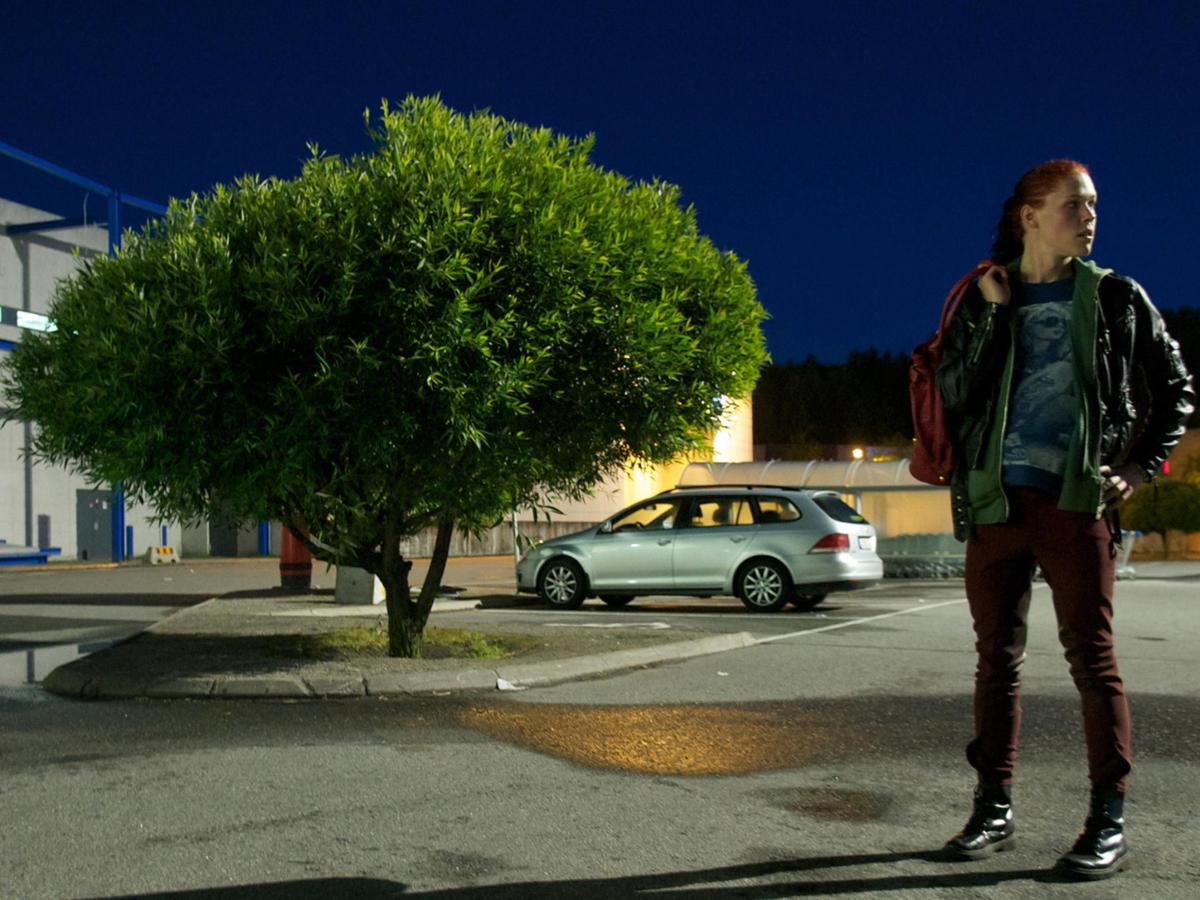A metallic thrum marks the start of Something Must Break (Nånting måste gå sönder), and then, in a sudden shift, the melodious sounds of choral singing. Between the two extremes, Sebastian (Saga Becker) tells that things must change, in mournful, matter-of-fact narration. The two modes of the acoustic onslaught are symbolic, and as obvious as the on-screen representation of blooming roses followed by prickly thorns. The sounds and sights may evolve, but the juxtaposition is repeated. Sebastian hears noise and sees pain, the routine clattering of an ordinary life heightened by unhappiness. Sebastian wants to experience peace and beauty.
Sebastian longs to be Ellie, his female alter ego, a yearning his housemate, Lea (Shima Niavarani, Swedish TV’s Allt faller), understands even if most do not. Andreas (Iggy Malmborg, Echoes from the Dead) becomes the handsome hero who saves the day during a violent altercation, his valiant act and the fascination that follows masking his uncertainty. Post-incident, the pair is inseparable, running around town with lust and fun on their minds. Alas, even as love blooms, the boundaries of Andreas’ sexuality prove less fluid than Sebastian hopes.
With somewhat fatalistic thoughts about romance and contentment, Something Must Break takes its name and attitude from a Joy Division track, but its tortured love story belongs to transgender writer/director Ester Martin Bergsmark and co-scribe Eli Levén. In their second collaboration after 2012 documentary She Male Snails, they use every plot machination and aesthetic method at their disposal to convey Sebastian’s tumult, as amplified by the flimsy promise of fulfilment that is Andreas. The key relationship is hit back and forth, bouncing about with the mood. The aural soundscape continues to weave between atmospheric and recorded sources, the blatant use of Roxette’s Fading Like a Flower included. The images keep intercutting visual manifestations of the theme within the narrative.
As tender as the film may be in its consideration of the transgressive, it is also far from subtle, with its physicality on full display and its emotions worn firmly on its sleeve. Just as the feature’s presentation begs for attention in every calculated clash, so does the impassioned rallying against gender categorisation that drives its every element. The Something Must Break of the movie’s moniker doesn’t just refer to Sebastian’s turmoil or transition, nor the central strained romance, but the societal system that makes both sadly inevitable.
Becker furnishes the lead role with a delicate touch, gifted by the character’s status as the only one fleshed out beyond a sketch, and compelling the audience’s compliance with Sebastian and Ellie’s journey as a result. Though those that surround the obvious protagonist serve their purpose, their slightness can’t help but disappoint. To cement the feature’s message and sell its missive, more than archetypes are needed. We watch Sebastian and Andreas keep coming together, we feel for their struggles and condemn the reality that surrounds them, but Something Must Break only provides the scantest, bluntest details.
Rating: 3 out of 5 stars
Something Must Break (Nånting måste gå sönder)
Director: Ester Martin Bergsmark
Sweden, 2014, 81 mins
Sydney Film Festival
www.sff.org.au
4 – 15 June
Actors:
Director:
Format:
Country:
Release:





